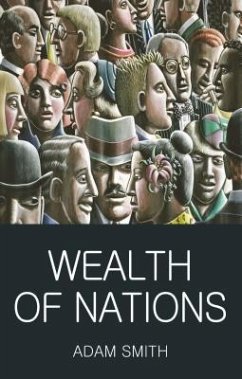Adam Smith's Wealth of Nations is the first book of modern political economy, and still provides the foundation for the study of that discipline. Along with important discussions of economics and political theory, it mixes plain common sense with large measures of history, philosophy, psychology and sociology.
Bitte wählen Sie Ihr Anliegen aus.
Rechnungen
Retourenschein anfordern
Bestellstatus
Storno








